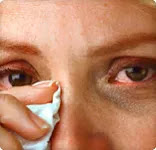What Is Drooling?
Drooling is defined as saliva flowing outside of your mouth unintentionally. It is often a result of weak or underdeveloped muscles around your mouth.
The glands that make your saliva are called the salivary glands. You have six of these glands, and they are located on the bottom of your mouth, in your cheeks, and near your front teeth. These glands typically make 2 to 4 pints of saliva a day. When these glands make too much saliva, you may experience drooling.
Drooling is normal in the first two years of life. Infants do not often develop full control of swallowing and the muscles of the mouth until they are between 18 and 24 months old. Drooling often occurs when a baby is teething. It can also occur in people who have neurological disorders such as cerebral palsy.
What Conditions Cause Drooling?
Drooling can be a symptom of a medical condition, developmental delay, or taking certain medications. Anything that leads to excessive saliva production, difficulty swallowing, or problems with muscle control may lead to drooling.
Some of the medical conditions that affect muscle control over the lips and tongue and cause drooling include:
- cerebral palsy
- multiple sclerosis
- stroke
- Parkinson’s disease
Other conditions that can lead to drooling are:
- allergies
- acid reflux or heartburn
- pregnancy
- above-the-neck infections such as strep throat, tonsil infection, or sinus infections
- Drooling Risk Factors
Age
Drooling begins after birth and peaks between 3 and 6 months as infants become more active.
Neurological Disorders
Certain medical conditions can put you at risk for drooling. If a disease that decreases control of facial muscles affects you, you are more likely to drool.
Diet
Diets high in acidic content often cause excessive saliva production.
Medical Conditions
Drooling is usually caused by excess saliva in the mouth. Medical conditions such as throat infections and pregnancy can increase saliva production. Allergies, tumors, and sinusitis can impair swallowing.
How Is Drooling Treated?
Drooling is not always treated. Treatment will not be advised for someone under the age of 4 or who drools during sleep.
Treatment is recommended when drooling is severe; for example, if saliva drips from your lip to your clothing or your drooling interferes with your daily activities and creates social problems. Excessive drooling can also lead to inhaling saliva into the lungs, which can cause pneumonia.
Therapy
Speech and occupational therapists help teach positioning and posture control to help improve lip closure and swallowing. Therapists may also suggest you see a dietitian to modify the amount of acidic foods in your diet.
Appliance/Dental Device
A special device placed in the mouth helps with lip closure during swallowing. This option works best if you have some swallowing control.
Drugs
Certain medications help reduce saliva production. Medications include:
Scopolamine: comes as a patch and is placed on your skin to deliver the medication slowly throughout the day. Each patch lasts for 72 hours.
Glycopyrrolate (Robinul): given as an injection or in the form of a pill. Robinuldecreases your saliva production but can cause dry mouth as a result.
Atropine sulfate: given as drops in the mouth; usually used for patients during end-of-life care when they are having difficulties with drooling.
These medications can have side effects such as dry mouth, irritability, skin flushing, urinary retention, constipation, headaches, and nosebleeds.
Botox Injections
Botox injections may help reduce symptoms of drooling by tightening facial muscles.
Surgical Treatment
Several procedures are approved for the treatment of drooling. The most common is a procedure that reroutes the salivary ducts to the back of the mouth to prevent drooling outside of the mouth. Another procedure removes your salivary glands completely.

